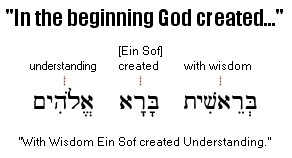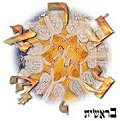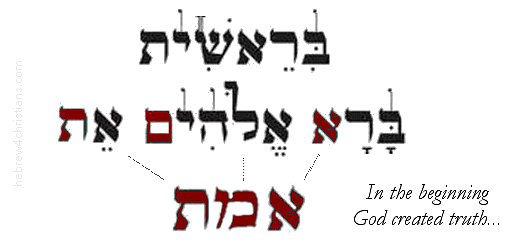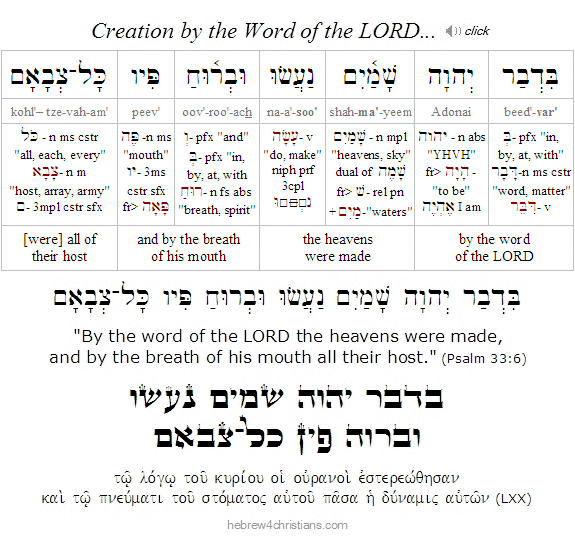|
Two Jews, three opinions... It sometimes seems like Judaism quite literally can't figure out the first word of the Torah... Lest you think me unfair, consider the very first word of the Torah -- the Hebrew word bereshit (בְּרֵאשִׁית).
Regarding this word the Talmud states that King Ptolemy of Egypt gathered 72 sages and placed them in 72 chambers without telling them why he brought them together. The legend has it that he went to each sage and told him: "Translate for me the Torah of your master Moses into Greek." (This ancient Greek translation was later known as "translation of the Seventy" (i.e., תַּרְגּוּם הַשִּׁבְעִים) or the "Septuagint"). God then prompted each sage to translate the Torah in precisely the same way. For example, the sages all rendered bereshit bara Elohim in Greek as, "God created in the beginning" (ἐν ἀρχῇ ἐποίησεν ὁ θεὸς) instead of the more literal, "In the beginning created God." The Talmud claims that God prompted the sages to translate this way in order to prevent Ptolemy from thinking that God (אֱלהִים) was created by a spearate being named "in the beginning" (i.e., bereshit). Of course this story is apocryphal, but many devout Jews regard (who do not understand Koine Greek) actually believe this fable...
Now what is ironic about all this is that the Kabbalists do precisely what the Talmud claims was expressly forbidden. According to the Zohar, one of the names of God associated with the attribute of "Binah" (understanding) is Elohim (אֱלהִים), and therefore when the Torah says "bereshit bara Elohim," the word Elohim is really to be understood as a direct object, not as the subject of the verb. Moreover, since the word reshit (רֵאשִׁית) is associated with wisdom (חָכְמָה) in Psalm 111:10, the word "bereshit" should be read as "with wisdom." Thus the Kabbalists maintain that "In the beginning God created..." should be translated as "with wisdom Ein Sof (the unexpressed subject of the verb) created Elohim. Here is a diagram of the first clause of the verse:
 |
It should be clear that the Zohar's approach is a classic example of "reading into" the text ideas that simply are not present. Indeed, relying on esoteric methods to discover the hidden meaning of Torah invariably yields confusion and error, chaverim. At any rate, as the word bereshit indicates, there is a great divergence of opinion among Jews regarding its meaning. And since normative Judaism claims that the Oral Torah is a source for genuine truth, those who follow mystical traditions within Judaism will find themselves at odds with the history of Jewish theology.
Hebrew Lesson
Psalm 33:6 Hebrew reading (click):
|





